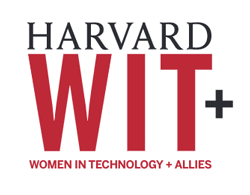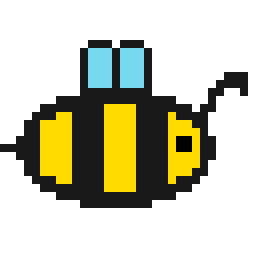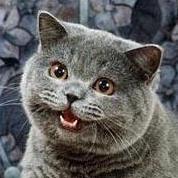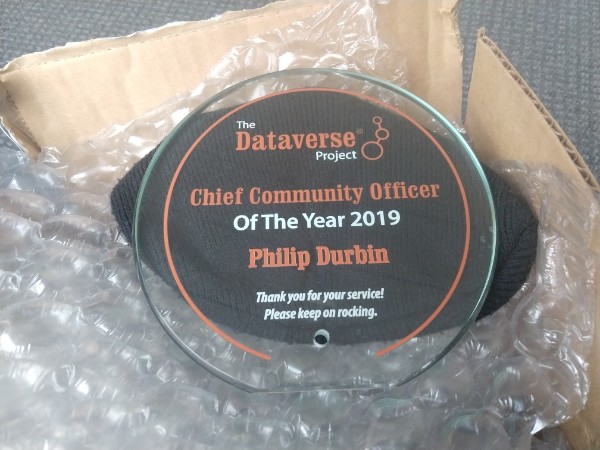February 5, 2020
Interactive HPC
Today I told a couple members of the Sid team about a talk at FOSDEM I attended on Sunday called “Interactive applications on HPC systems Jupyterhub, Galaxy, RStudio, XPRA.”
I pointed out that the slides show that they've looked at solutions like OnDemand but built their own thing.
I'm tempted to put this new project on my list of things that look like Sid but I don't think it has a name and it isn't open source.
read more
February 4, 2020
Google Summer of Code
Today it was announced that Dataverse will apply to participate in Google Summer of Code 2020. Awesome.
Update: I suggested a data driven approach of using Druthers to figure out what users want.
read more
February 3, 2020
SMACKI
Today my friend Slava tweeted the following at me:
“I'm thinking for a long time how to turn all SLOPI communication channels into #knowledgebase with some NLP pipelines and archive it in @dataverseorg. Probably another crazy idea for Hackathon in June during community meeting.”
In my reply, I tried to explain that yes, I definitely want a knowledge base, but from a recent conversation with a friend, I'm wondering if it should be build on Blacklight.
read more
February 2, 2020
FOSDEM day 2
I mentioned that my FOSDEM talk was accepted a while back. Awesome.
Here are some devrooms I'm planning on checking out:
Open Research Tools and Technologies devroom HPC, Big Data, and Data Science devroom Open Source Design devroom Free Java devroom video
read more
February 1, 2020
FOSDEM day 1
I mentioned that my FOSDEM talk was accepted a while back. Awesome.
Here are some devrooms I'm planning on checking out:
Open Research Tools and Technologies devroom HPC, Big Data, and Data Science devroom Open Source Design devroom Free Java devroom
read more
January 31, 2020
Dataverse at the State Archives of Belgium
notes
Quick news:
Dataverse Community Meeting Trello board: DataverseTV Dataverse Meetups at dataverse.org/events GDCC Developer Jim Myers Curation services from Harvard Dataverse New community stuff
Dataverse map (dataverse-installations) Druthers Installation personas dataverse-sample-data New features:
File previewers Data Curation Tool OIDC Move dataset BagIt export Schema.org JSON-LD (Google Dataset Search) OpenAIRE export Make Data Count Help update list of features? Code in Dataverse:
AJPS software citation (Dorthea) software metadata block 5 Dockerfiles Reproducibility:
read more
January 30, 2020
PIDapalooza 2020 day 2
schedule
I gave a 7 minute lightning talk with the title “Dataverse: A community dedicated to publishing research data.” My slides.
http://portal.confref.org
ball
In-Text Reference Pointer Identifier (InTRePID)
New RA. Something to do with supply chain.
https://doi.statuspage.io
Update: Other people are blogging about PIDapalooza 2020:
Alice Meadows
read more
January 29, 2020
PIDapalooza 2020 day 1
schedule
In the opening keynote: "Towards the Circular Science: PIDs for a new generation of knowledge creation and management paradigm in Portugal: from vision to reality" (Maria Fernanda Rollo, NOVA FSCH) challenges and trends, including new paradigm of data-driven science. drawing. reducing bureaucracy in science. student IDs allow aggregation of information. Science ID and Ciência Vitae
George Duimovich media concentration
I shall be released or how to stop worrying about new versions Maria Helena Vieira Room Martin Fenner Bob Dylan 1968 delima.
read more
January 28, 2020
PIDapalooza 2020 day 0
I mentioned my upcoming trip for PIDapalooza and now it's here! I flew out of Boston yesterday evening, couldn't sleep on the red eye, stood in an excruciatingly long line at customs in the Lisbon airport and had a variety of tribulations including nearly getting pick pocketed, but I made it!
After a power nap I took it as a sign that since I woke up in enough time to make it to the Research Organization Registry (ROR) that I should go, even though it was sold out and I'd be a few minutes late.
read more
January 27, 2020
LibraryCloud
CURIOSity Digital Collections and Harvard Digital Collections are both built upon APIs available from LibraryCloud but this is only mentioned in passing in some docs. Visually beautiful things can be built on top of APIs.
Back on January 6th I went to a talk on LibraryCloud and met the team. They're doing great work and it's open source!
read more
January 26, 2020
The Open Source Software Health Index Project
As the website for the Open Source Software Health Index Project (OSS Health) explains,
“The Harvard Institute for Quantitative Social Science is developing a framework for evaluating open source software applications and their communities and will propose approaches for systematically building scales to quantify the health and sustainability of academic open source projects.”
I joined the team a little late but in early 2019 I did take the survey about what I think is important to look at when evaluating the health of an open source project and later attended the June 2019 workshop where the survey results were discussed with a panel of open source experts.
read more
January 25, 2020
Searchable Linkable Open Public Indexed (SLOPI) Communication or Why open source projects should avoid Slack
Free and open source software projects have a long history of transparent communication. GNU and Linux were announced in publicly archived USENET posts in 1983 and 1991, respectively, that we can still reflect on today. The Debian Social Contract says, “We will keep our entire bug report database open for public view at all times.” Apache “requires all communications related to code and decision-making to be publicly accessible.”
Today many open source projects are turning away from transparency, adopting tools such as Slack for the bulk of their communication.
read more
January 24, 2020
European Dataverse Workshop 2020 day 2
I'm still not in Tromsø, as I mentioned in my post about day 1, but it's fun to follow along with European Dataverse Workshop 2020 via #dataverse2020.
I was delighted to see poikilotherm looking like such a badass. I guess he was wearing all black when we met in Berlin as well but this is a man who is serious about Dataverse and earns tweets like “A look into the future of DevOps.
read more
January 23, 2020
European Dataverse Workshop 2020 day 1
Ok, I'm not actually at European Dataverse Workshop 2020 but I'm enjoying the tweets from afar. I love how #dataverse2020 is trending in Norway right now. I love how Oliver Bertuch describes Dataverse as a vibrant community. Shout outs are always appreciated, of course.
I think it's cool that the list of participants is online. Without it, I wouldn't have been able to throw the data in Dataverse and Data Explorer to quickly get a histogram of the 19 countries are participating.
read more
January 22, 2020
Harvard DataFest 2020 Day 2
Day 1 of #HarvardDataFest was fantastic and the schedule for day 2 is looking good.
Fernando Pérez Page of Galileo's notebook, a precursor to Jupyter notebooks.
Jupyter Meets the Earth: An Open, Collaborative Approach for Earth Data Science by Fernando Pérez
Yes, the logo is what happens when you hand the original drawings from Galileo to a designer.
Fouder of Berkeley Institute for Data Science.
The world is literally on fire.
read more
January 21, 2020
Harvard DataFest 2020 Day 1
The schedule for #HarvardDataFest is jam packed with awesome talks. I had to make a lot of tough choices today.
Unfortunately, I had to run out of Data Visualization with Tableau with Jess Cohen-Tanugi to take a call but she did a fabulous job showing how to visualize storms data (hurricanes, tropical storms, etc.), creating maps and “blending” data sources. I plopped myself down next to Alyssa Goodman and I'm so glad I did.
read more
January 20, 2020
PIDapalooza
In about a week I'm flying to Lisbon for PIDapalooza 2020.
Looking through the schedule and list of speakers it should be a good conference. I added myself to the list of attendees.
As I mentioned in a thread on the Dataverse mailing list, my talk about Dataverse wasn't accepted. Oh well, at the conference itself you can propose lightning talks so we'll see. At least I learned that the creator of OAI-PMH, Herbert van de Sompel, will be there.
read more
January 19, 2020
Life 3.0
My digital copy of Life 3.0 by Max Tegmark was just auto returned to the library again. I think I was somewhere in chapter 4.
I'm enjoying it, but when my friend Tony was over the other day I couldn't even articulate the three stages, so here's my attempt:
Life 1.0, biological stage: life's hardware and software are fixed, except through evolution Life 2.0, cultural stage: life's hardware is fixed but software is not fixed because learning is common Life 3.
read more
January 18, 2020
Open Source at Harvard
The other day I mentioned in passing how Open Source at Harvard has a new website and when I wrote about GitHub Actions that was me taking a look at how the website is deployed.
But is Open Source at Harvard really a thing? If so, what it is? Let's dig in.
(Today I threw together the logo above in 60 seconds. Patches welcome!)
I've been fascinated with open source since I first discovered in the late 90s.
read more
January 17, 2020
HarvardWIT+ Mentoring
HarvardWIT+ asked for mentors to participate in their mentoring program and I signed up. My mentee is very nice and we met today.
She has a variety of ideas of where she's like to take her career and has expressed an interest in learning Python or R. I asked her to this of something from work that she could use as a first project.
She explained that when looking at a record in ALMA with a number like 99153754014903941 what she really wants is the older HOLLIS number (better for searching) that's embedded within in.
read more
January 16, 2020
Quarkus
Today Daniel Oh from Red Hat came to IQSS to tell us about Quarkus.
Backstory There's some backstory to this. Last summer I was really fired up about Quarkus after hearing about it on various podcasts and then hearing Daniel give a talk about it at DevConf. (That talk is on YouTube and his slides are available.) I went home and tried Quarkus (and GraalVM) myself. It really worked. Awesome.
read more
January 15, 2020
The Turing Way
The other day a contributor to The Turing Way said they enjoyed the videos I made some noise about last week. She even asked if she could add them to their newsletter.
“Of course!” I said, and today that newsletter was published.
You can read it on tinyletter but here's the part I'm talking about:
The Whole Tale open source platform for reproducible research
The Whole Tale project is an NSF-funded initiative building a scalable, open source platform for reproducible research.
read more
January 14, 2020
Fernando Pérez
Fernando Pérez will be our keynote speaker at DataFest 2020 next Wednesday and I'm looking forward to introducing him to various groups that are eager to meet with him.
I've been looking through his recent tweets and I like what I see:
Guix-Jupyter: Towards self-contained, reproducible notebooks How GESIS joined the Binder federation The lifecycle of open source scientific software I love that he retweeted Péter Király and Carol Willing, whom I consider friends, as well as Dario Taraborelli, whom I met at an open science event a while back.
read more
January 13, 2020
GitHub Actions
When the blog post went out about GitHub Actions I didn't notice it but today I got a nice brain dump about them.
My understanding is that GitHub Actions are all about Docker. You specify which Docker images you want to run and which commands to run within them. The example we were looking at builds a site using Jekyll and then pushes the static files to the master branch:
read more
January 12, 2020
Helper Bees
This afternoon the Helper Bees team is having its biggest meeting since our kickoff.
With Helper Bees we are matching student volunteers to neighborhood donors. At least that's the description I put for the repo on GitHub, which has the following sequence diagram that a friend said is worth a thousand words:
Here's a rough timeline of Helper Bees from my perspective:
October 6, 2019: Initial idea, helperbees.org registered October 21, 2019: Onboarding product owner October 25, 2019: Prototype at Halloween Bash November 5, 2019: Signing up kids to volunteer at the Flatbreads Pizza and Brighton Bowl party November 20, 2019: Launch November 27, 2019: Talking it up with the principal and others at the DFL Superbowl December 10, 2019: Helping parents use the live site at Craft Fair January 12, 2020 (today): Passing the baton for next year.
read more
January 11, 2020
Fennel
I really enjoyed episode 30 of Libre Lounge where Serge Wroclawski interviewed Phil Hagelberg about his language Fennel, which is a Lisp that runs on Lua runtimes.
I'm not very familiar with Lua so it was interesting to hear that the reference implementation is only 200 kilobytes. I also like the idea that Lua is “relentlessly simple” with only a table as a data structure. The fact that you have to invent your own object system (if you want it), reminds me of Perl.
read more
January 10, 2020
CS50 and Kubernetes
Today I went to the 411th consecutive ABCD main meeting to hear David Malan and Kareem Zidane talk about CS50‘s use of Kubernetes. The talk was fantastic and the slides are already available. It looks like a previous similar talk is on YouTube.
As luck would have it, I crossed paths with David on the way to the venue so we got a chance to chat a bit. I took CS75 in 2009 with him in person and really enjoyed it.
read more
January 9, 2020
Graphic design
Today was the 15th and 20th work anniversary of two of my long time colleagues. Speeches were made. Cake was eaten. I heard about catacombs I didn't know existed under a nearby building. It was a great time.
I sat next to our resident logo designer (one of many hats he wears) and explained that I told my daughter Erika about him the other day when we were driving home from cello practice, that if she's having fun designing logos, that it's a real job.
read more
January 8, 2020
Blogging with vi
Over a week into blogging every day on this new blog I've started to get a little braver about mentioning it to people. Twice today I felt compelled to explain that I'm blogging with vi. Here's my process:
ssh into my server run my “create post” script to stub out a file think about what to write rename the stub to match my topic, a bit find an SVG file for the topic write, make, write, repeat make sure post is a “5 minute read” or shorter make sure it looks fine on mobile commit, push pull on some other computer so I have a backup.
read more
January 7, 2020
The power of video demos
Today I was working away when Craig Willis from Whole Tale pinged me and asked me look over an email he plans to send about a new integration between Whole Tale and Dataverse.
In the email he plans to link to two videos, both of which do an incredible job of demonstrating the integration:
Starting from Dataverse Starting from Whole Tale Unless you're into science and reproducibility there's no need to watch the videos but they are so effective at getting the point across that I went ahead and linked to them in a related issue I opened for another potential integration.
read more
January 6, 2020
Chief Community Officer
Late last week a package arrived at work. My office mate and I decided we should wait until more people were around before I opened it.
I knew Oliver Bertuch had sent it because he told me it's not a bomb. I met Oliver in Berlin in February at an event called Open Science Days where I gave a talk about Dataverse. He had been contributing to Dataverse for months and it was great to finally meet him.
read more
January 5, 2020
First Inkscape Vectors meeting of 2020
Yesterday I was putting together a dresser from IKEA and had my laptop near me to glace at various chat rooms from time to time to see what's cooking.
As luck would have it, I checked Inkscape's #team_vectors channel and noticed an announcement that a meeting was coming up in a couple hours. From the teams page,
“The Vectors are the marketing, outreach, and promotion team for Inkscape. Designers, artists, marketers, writers, and anyone enthusiastic about bringing Inkscape to more people in more places is welcome to join.
read more
January 4, 2020
Open Source Diversity at FOSDEM 2020
I'm excited about going to FOSDEM 2020 for many reasons.
I'll be giving a talk on Dataverse.
I've also been keeping any eye on a thread on the Open Source Diversity forum about who to look for at FOSDEM.
Open source has a pretty terrible track record when it comes to diversity. A 2017 survey by GitHub indicates how male-dominated open source is by saying,
“The gender imbalance in open source remains profound: 95% of respondents are men; just 3% are women and 1% are non-binary.
read more
January 3, 2020
Learning Inkscape
For years I've been meaning to learn Inkscape.
Recently, I found a nice tutorial where Jurgen Gaeremyn explains very clearly how to draw a kitten in a “vector” layer over top of a “bitmap” layer in Inkscape.
My daughter Erika and I were absolutely enthralled.
Here's the kitten we drew:
The really cool thing is that I emailed Jurgen to say thank you and he wrote back right away saying,
read more
January 2, 2020
Dataverse talk accepted at FOSDEM 2020
The talk I submitted to FOSDEM, “Advancing science with Dataverse: Publication, discovery, citation, and exploration of research data,” has been accepted! I also have a speaker page. I'm waiting until I finish coordinating a “fringe” event before I follow up on the FOSDEM 2020 in Brussels Feb 1-2 to announce both (and tweet about it) but I'm very excited. This will be my first trip to Belgium and my first time attending FOSDEM.
read more
January 1, 2020
A new blog
It would be nice to write more.
Here are some ideas of what to write about in 2020:
Podcasts about software development. Books worth reading. Talks worth watching. Trip reports from conferences More ideas:
SLOPI Druthers SMACKI Web Components Open Source Health (or contribute to blog) Open source heroes
read more






















